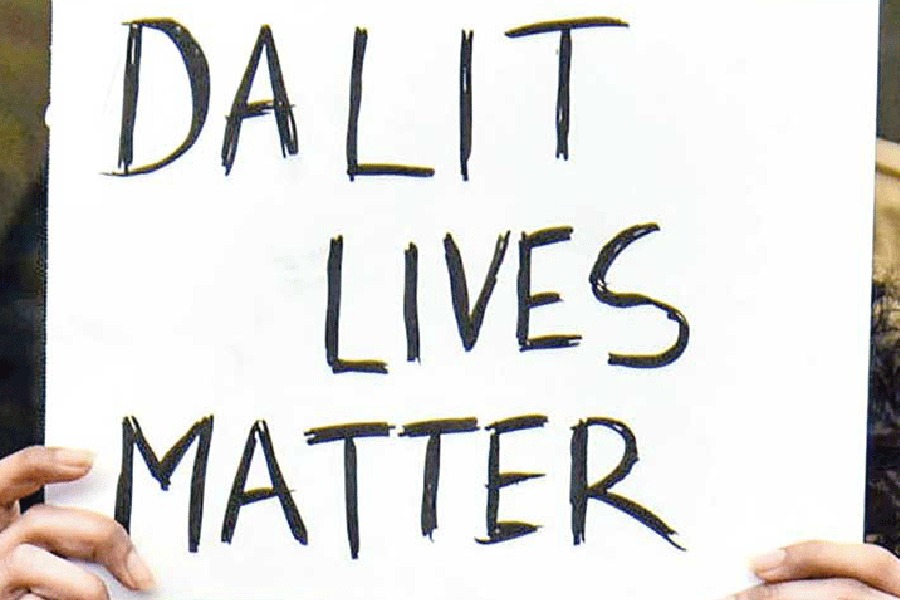When the Centre squeezed its funding for a Scheduled Caste scholarship six years ago, it triggered a chain of events that has led to a hapless young Dalit mother being served with an arrest warrant this month over a bounced cheque.
She must furnish a security bond of Rs 25,000 in court before the next hearing in February; else the bailable arrest warrant will turn into a non-bailable one and she might be arrested anytime. Conviction can bring up to two years in jail.
The Dalit woman, who did her BEd between 2017 and 2019 from the private Guru Nanak College of Education (GNCE) in Ludhiana, Punjab, had like many other Dalit students in several Punjab colleges had to hand over a blank cheque to the institution during admission.
The college apparently wanted to use the cheques if the Post-Matric Scholarship (PMS) for Dalits, which was to pay for Dalit students’ education at the institution, never arrived from the government.
This was because the Centre had in 2017 shifted almost the entire financial burden of the PMS for Dalits to the states, which till then paid less than half the amount. This caused the payment of the scholarship to virtually stop in many states, including Punjab.
The rules were changed again in 2021, with the Centre again shouldering the bulk of the financial burden for the scholarship. But many colleges in Punjab remained un-reimbursed for the education of Dalit students between 2017 and 2021.
So, some of the colleges that had collected signed blank cheques from their Dalit students began filling them and submitting them at banks. And some of the cheques bounced because these former students did not have the money in their bank accounts to make up for their governments’ failure to pay their scholarship.
The amount the GNCE wrote on the blank cheque given by the Dalit woman,
now married and the mother of a child, was Rs 1 lakh, she said.
“I have been served with a bailable warrant by the district court of Ludhiana. I have no money to fight the case. The college has withheld our certificates. I cannot appear in any job interview,” she told The Telegraph, requesting anonymity.
“And now the college has lodged a cheque bounce case against me.”
Activist and lawyer Rajesh Kumar said: “Several hundred (former) Dalit students are facing (cheque bounce) cases (in Punjab) and the denial of their degrees for no fault of theirs.”
Kumar, who is helping the Dalit mother and many other Scheduled Caste students challenge the cases in Punjab and Haryana High Court, said the colleges’ move of extracting blank cheques was illegal and amounted to mental harassment of the former students.
Another Dalit woman who had completed her MEd between 2017 and 2019 said the police had visited her home to hand over a bailable arrest warrant recently.
“I got married two years ago. The police arrived at my in-laws’ home to hand over the warrant. It’s as though I have committed a crime,” she said.
An email was sent to GNCE principal Neetu Handa about the allegation of harassment. Her comments are awaited.
The PMS for Dalits provides every student from the community who has cleared their Class X boards a monthly cash stipend till they postgraduate. The sum varies from Rs 230 to Rs 1,250 depending on the course. Till 2017, the Centre shouldered about 55 per cent of the burden under the then funding formula.
Under successive governments, the scholarship was marred by delayed payment for months.
The Punjab government decided in 2007 that instead of the PMS being paid as cash to the students, it would be paid as reimbursement to the colleges, which will not charge any tuition fee from Dalit students.
As the reimbursements virtually stopped after the funding tweak of 2017 that put the onus on the states, some colleges began collecting signed blank cheques from Dalit students during admission.
The official reason given was that if they dropped out before the arrival of the first tranche of the reimbursement — which was chronically delayed — the money might never arrive at all. Eventually, the money never arrived even for many of those who completed their course,
In 2021, several colleges in Punjab began withholding the documents — such as degree certificates, mark sheets, character certificates and certificates for participation in extracurricular activities — of Dalit students whose fees had not been reimbursed.
In June that year, the state government asked the colleges not to demand the outstanding fees from the former students, and to give them their certificates and documents. But several colleges did not comply fully.
Some colleges like the GNCE handed over the degree certificates and mark sheets to former students who had approached them immediately after the government directive, but withheld the character certificates and certificates for participation in extracurricular activities. Those who applied a few months after the directive were denied any certificate.
In the high court, the former students have pleaded that all the certificates be issued to them without the colleges demanding any fees. They have also sought quashing of the cheque bounce cases.
The PMS for Dalit students was started in 1945 following a demand from Babasaheb Bhimrao Ambedkar.
The funding formula that caused all the trouble was adopted in 2017-18. It says the highest total amount each state had spent on the PMS for Dalits in any particular year during the 12th Plan (2012 to 2017) will be that state’s “committed liability”. The Centre would pay whatever additional sum the state needed in any particular year.
By and large, this meant the Centre had to pay only a small amount, or nothing at all in some years.
Many states, unable to cough up anything close to their new “committed share”, virtually stopped paying the Dalit students or, as in Punjab’s case, reimbursing the colleges.











